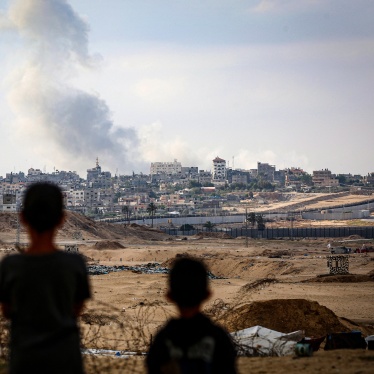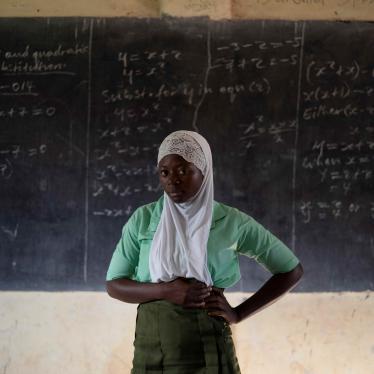The main rebel group in Colombia must act decisively to reverse a worsening record of abuses against civilians, Human Rights Watch said in a letter to rebel commander Manuel Marulanda, the commander-in-chief of the Revolutionary Armed Forces of Colombia-People's Army (FuerzasArmadas Revolucionarias de Colombia-Ejército del Pueblo, FARC-EP).
In a twenty-page letter to Manuel Marulanda, the commander-in-chief of the Revolutionary Armed Forces of Colombia-People's Army (Fuerzas Armadas Revolucionarias de Colombia-Ej?cito del Pueblo, FARC-EP), Human Rights Watch described the FARC-EP's responsibility for serious abuses, including killings of civilians, hostage-taking, the use of child soldiers, grossly unfair trials, the cruel and inhuman treatment of captured combatants, and the forced displacement of civilians. Human Rights Watch also cited the FARC-EP's continuing use of prohibited weapons, including gas cylinder bombs, and its attacks against medical workers and facilities in blatant disregard of international humanitarian law.
In particular, the FARC-EP has committed abductions and extrajudicial executions in the zone ceded to its control for talks with the government (zona de despeje). The Colombian government granted the Switzerland-sized area to the FARC-EP in November 1998 to further peace talks. "The FARC-EP has an appalling record of abuses," said Jose Miguel Vivanco, executive director of the Americas Division of Human Rights Watch. "As top commander of the FARC-EP, Manuel Marulanda is the one responsible for taking the steps necessary to adopt and enforce international legal norms. That is why we addressed him directly."
Formally established in 1964, the FARC-EP is Colombia's oldest and largest rebel group. Although estimates differ, the FARC-EP is believed to have over 15,000 members and is active throughout Colombia. Marulanda was one of the original founders and now presides over the General Secretariat, the group's seven-member governing body.
Human Rights Watch conducted a mission to the Zone in May and June of 2000. There, Human Rights Watch held meetings with several high-level FARC-EP commanders who disputed the applicability of international humanitarian law principles to the conduct of the FARC-EP. In its letter to Marulanda, Human Rights Watch explained that the relevant international norms are not subject to negotiation, but must be upheld by each of the parties to the armed conflict in Colombia.
Human Rights Watch directly investigated and confirmed that individuals in the Zone were subject to a wide range of abuses, including abductions followed by suspected extrajudicial executions. In 2000, human rights groups reported that the FARC-EP killed 496 civilians nationwide, many accused of being paramilitary or government sympathizers. The rights organization also received information about abuses committed by the FARC-EP outside the Zone.
An estimated 90,000 inhabitants live in the Zone. The Colombian government did not consult them before ceding control over the territory to the rebels. Nor were any special mechanisms put in place to protect their rights following the withdrawal of Colombian police and military forces, as well as judges and prosecutors.
In February 2001, President Andre Pastrana extended the FARC-EP's control of the Zone for an additional eight months. Given the vulnerability of the Zone's civilian population, Human Rights Watch believes that the government and FARC-EP should establish protections for the rights of residents of the Zone for the remainder of its existence.
Human Rights Watch applauded the FARC-EP's recent release of captured members of the Colombian military and police, but noted that many reported being held in abusive conditions.





